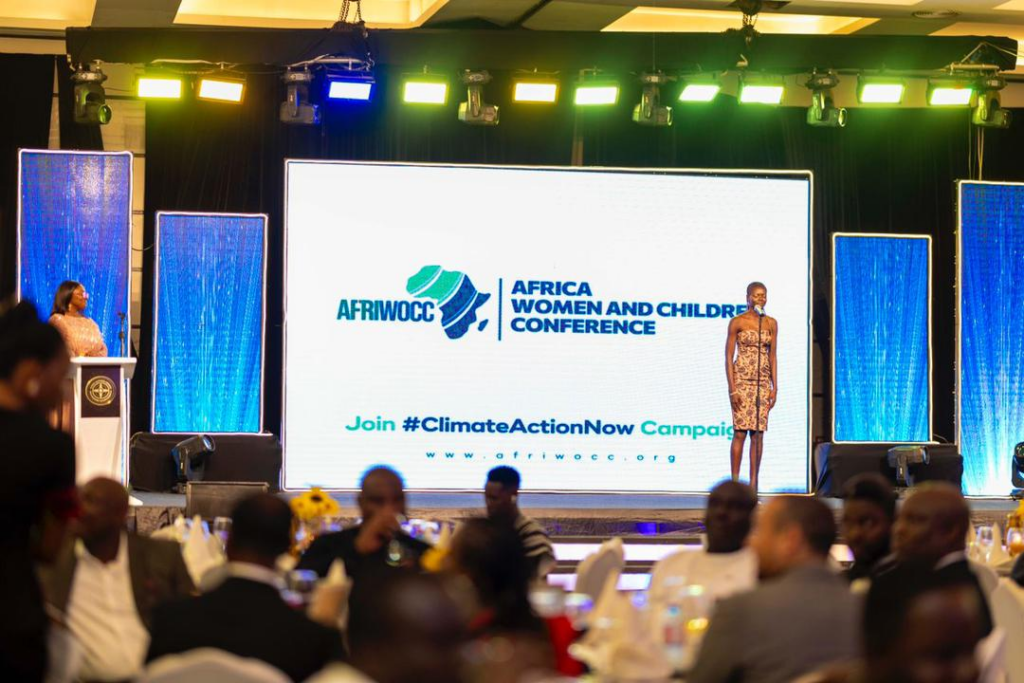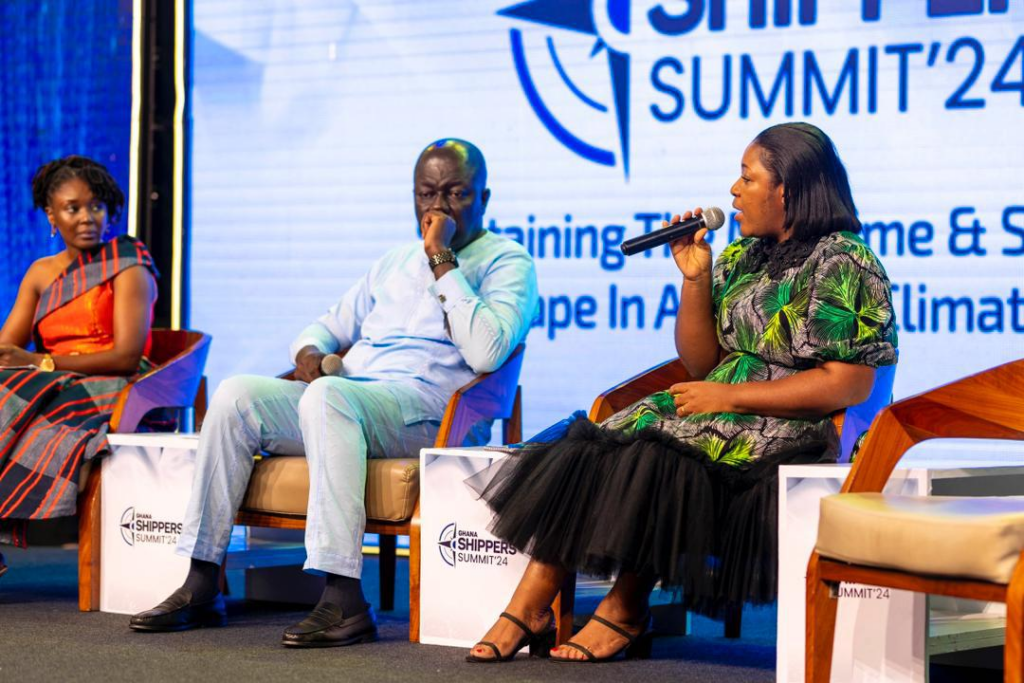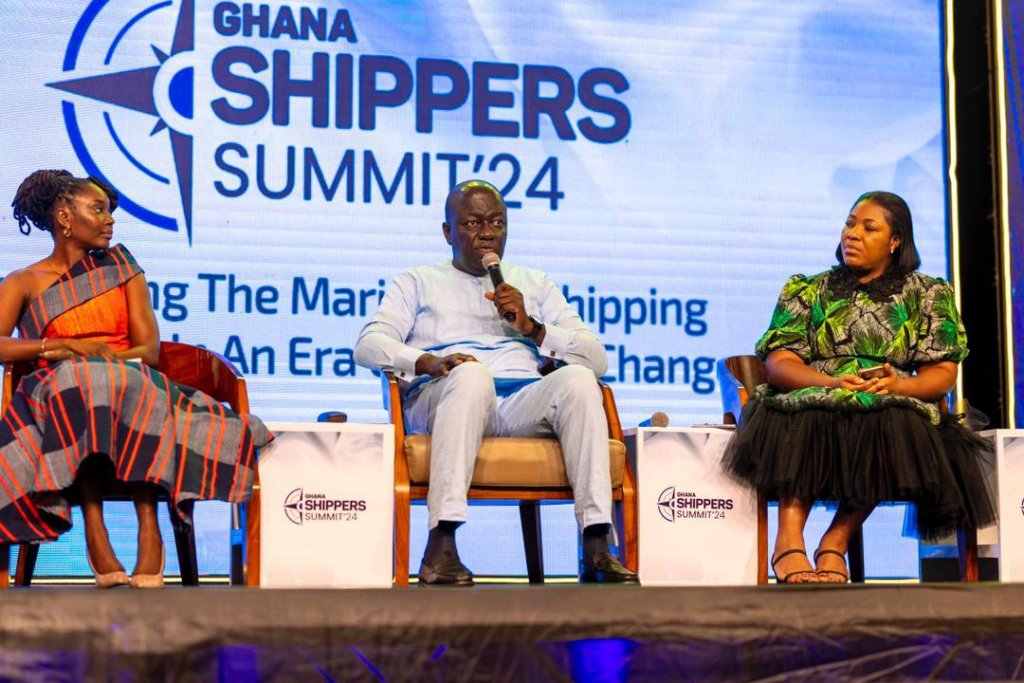In the wake of rising climate challenges, the Africa Women and Children Conference (AFRIWOCC) at the 2024 Ghana Shippers Awards held a pivotal discussion led by industry experts on the urgent need for climate change adaptation and resilience within coastal communities and the shipping sector, with a special focus on the impacts on women and children.
This discussion sought to explore Indigenous and innovative strategies as well as collaborative efforts essential for adapting to and building resilience against the impacts of climate change in coastal areas and the maritime industry, ensuring the protection and empowerment of women and children.

An analysis by Appeaning-Addo et al. in 2011 on the likely impacts of coastal inundation along the Dansoman coastal area of Accra revealed that about 650,000 people, 926 buildings, and a total area of about 0.80 km² of land are vulnerable to permanent inundation by the year 2100.
Women and children, who are often the most vulnerable in such scenarios, face increased risks to their homes and livelihoods.
The shipping industry, carrying over 80% of global trade, contributes to approximately 3% of global greenhouse gas emissions. This dual challenge necessitates the industry not only to adapt to the impacts of climate change but also to implement measures to reduce its carbon footprint, with a keen eye on safeguarding the well-being of women and children.
The conversation, moderated by Dr Yaw Agyeman Boafo, Senior Research Fellow at the Center for Climate Change and Sustainability Studies at the University of Ghana, focused on strategies being implemented by the shipping industry to foster resilience and reduce emissions.

Discussions underscored the importance of collaborative efforts to protect vulnerable populations, particularly women and children, and to build the industry’s resilience amidst the climate crisis. The need for policies and practices that prioritize the health, safety, and economic stability of women and children was a key theme.
Panellists for the discussion included Mrs. Saadia Owusu-Amofa, Regional Programme Coordinator for West Africa, International Water Management Institute (IWMI); Mrs. Rhodalyn Djanitey, Officer in Charge of Advocacy, Ghana Shippers Authority; and Mr. Peter Amoo-Bediako, Director of Port, GPHA-Takoradi.
They highlighted the critical role of women in climate adaptation and the importance of empowering them to lead resilience-building efforts in their communities.
AFRIWOCC’s commitment to helping women and children was evident throughout the discussion, emphasising the need for targeted interventions that address the unique vulnerabilities faced by these groups and ensure their active participation in creating sustainable solutions for climate resilience.

Latest Stories
-
Town council in Canada at standstill over refusal to take King’s oath
11 mins -
Trump picks Pam Bondi as attorney general after Matt Gaetz withdraws
23 mins -
Providing quality seeds to farmers is first step towards achieving food security in Ghana
33 mins -
How Kenya’s evangelical president has fallen out with churches
2 hours -
‘Restoring forests or ravaging Ghana’s green heritage?’ – Coalition questions Akufo-Addo’s COP 29 claims
2 hours -
Give direct access to Global Health Fund – Civil Society calls allocations
4 hours -
Trudeau plays Santa with seasonal tax break
4 hours -
Prince Harry jokes in tattoo sketch for Invictus
4 hours -
Akufo-Addo commissions 200MW plant to boost economic growth
4 hours -
Smallholder farmers to make use of Ghana Commodity Exchange
4 hours -
I want to focus more on my education – Chidimma Adetshina quits pageantry
5 hours -
Priest replaced after Sabrina Carpenter shoots music video in his church
5 hours -
Duct-taped banana artwork sells for $6.2m in NYC
5 hours -
Arrest warrants issued for Netanyahu, Gallant and Hamas commander over alleged war crimes
5 hours -
Actors Jonathan Majors and Meagan Good are engaged
5 hours

